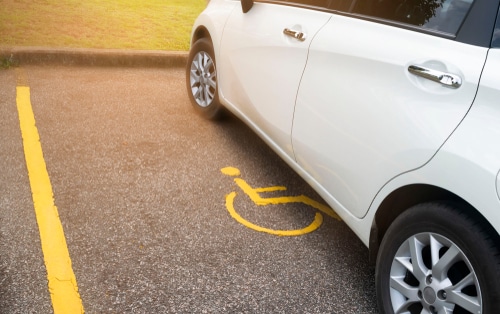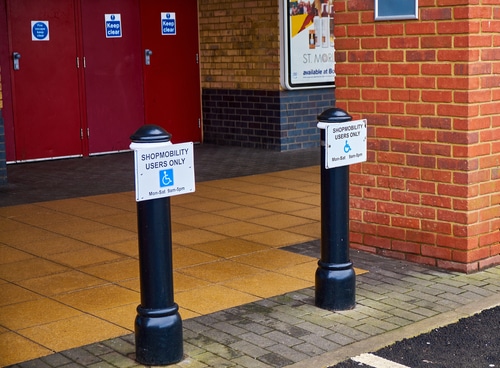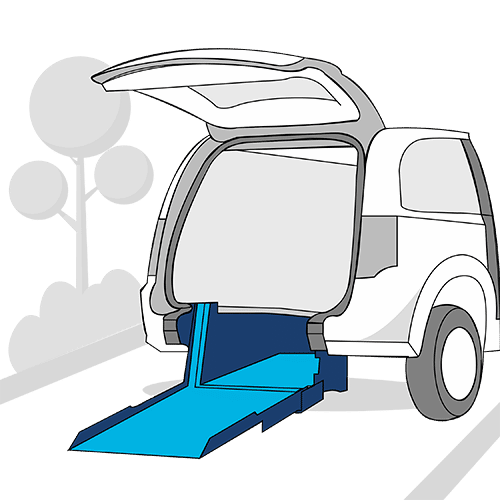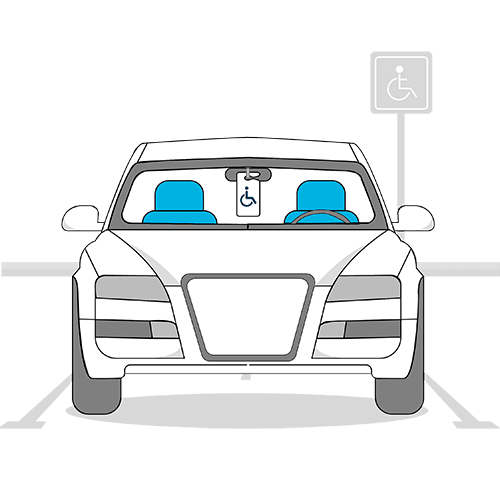Disability parking spaces, permits, and rules aren’t easy to understand or navigate. And because of this, people are often confused or not fully informed about who can access these spaces, when, and where.
To try and clear up some of the confusion, we’re here to tackle some of the most commonly asked questions around driving with a disability parking permit (DPP).
Disability parking permits
The first thing to tackle is disability parking permits themselves because they’re the enabler of disability parking (aka accessible parking) and the source of a lot of misinformation.
People often think they’re easy to get and that lots of Australians abuse the system by fraudulently securing a permit. However, once you look into getting a DPP you’ll realise it’s nowhere near easy to successfully apply for one. For more information on the process, read our article on how to get a disability parking permit.
Plus, the rules can differ across Australia, which only adds to the confusion. There are a lot of things to wrap your head around – though once you have the right information, you’ll be able to use your permit properly.
Common questions about disability parking permits
Here are some FAQs around disability parking permits.
- Can you use your permit outside your state?
Yes! Every state and territory recognises the Australian Disability Parking Scheme. But the laws aren’t the same everywhere. Read our detailed guide to taking your permit interstate if you’re relocating or going on holiday.
- Are there lots of people with fraudulent disability parking permits?
No. This is a common misconception. The reality is, getting a DPP takes a lot of steps and requires a lot of admin. Getting one isn’t easy, and those who have been granted a DPP really need them. Read more about how national disability parking permits are designed to reduce fraud.
- Can permit holders park anywhere for free?
Permit holders do have certain concessions and higher time limits in most public parking spaces, along with access to accessible parking spots. But they can’t park for free wherever they want, whenever they want.
- Once you have a DPP, can you use it for life?
No, and using an expired permit is illegal. Each holder of a disability parking permit must reapply for it regularly. Most permits have to be renewed every three to five years, but some permits are issued for shorter periods of time. For instance, to give temporary access to accessible parking for someone recovering from a serious injury.

Accessible parking spaces
Ok, so we’ve handled some common questions around the actual permits for disability parking. But what about accessible parking spaces, when you can use them, who can use them, and what the regulations are?
Common questions about accessible parking spaces
- Are accessible parking spaces everywhere?
All parking providers in Australia are legally required to provide disability parking permit spaces. That includes all councils and businesses such as shopping malls and medical centres. Read about why accessible parking spaces are designed the way they are.
- Who can use accessible parking?
Only drivers or passengers with a disability parking permit can use accessible parking bays. You can park there if you’re driving a permit holder around, but you can’t use it without them in the car.
- What should I do if someone’s using an accessible space illegally?
First, check whether the user has a DPP. Someone might not appear to have mobility issues, but could be living with invisible disability. If they have a permit, they need to use accessible parking. If you know they’re abusing the system and parking illegally, you can report it to local authorities. Or, use this app to report illegal parking.
- What about seniors parking and parking with prams?
Some other designated parking spaces aren’t for disability parking permit holders as such, but serve a similar purpose. That is, they make access easier for people who might otherwise struggle to access shops or services. There’s no legal requirement for these spaces nor are permits needed. They’re a courtesy service and aren’t enforceable by law. Which means DPP holders can use them. Read more about seniors spaces and other designated spaces here.
That said, if you’re not who the space is intended for and you don’t have a DPP, don’t park there!
- What’s accessible parking like overseas?
There’s no hard or fast rule to usage and availability of disability parking spaces in other countries. Different guidelines apply in different places, even within the one country. Find out more in our accessible parking around the world article.

Cheaper insurance for disability parking permit holders
Blue Badge Insurance knows most insurance providers consider disability permit parking users to be high-risk drivers. But as specialist insurance providers, we know they’re normally safer, lower-risk drivers.
That’s one of the reasons why we reward you with cheaper insurance premiums. In fact, you can get discounts of up to 25% on your disability car insurance. Plus, we can further safeguard you via wheelchair insurance, mobility scooter insurance or disability converted car and wheelchair accessible vehicle insurance.








